Unlock the Secrets to Better Sleep
Sleep is essential for our health, but many struggle with sleep disorders that can impact physical, emotional, and mental well-being. At The Hope Wellness Center, we are committed to helping individuals better understand the types of sleep disorders and how they can be managed. Sleep is not a luxury – it’s a critical part of your overall health, and addressing sleep disorders is key to improving your quality of life.
What Are Sleep Disorders?
Sleep disorders are conditions that disrupt your ability to sleep well on a regular basis. These disturbances can affect your overall health, leading to various complications, including fatigue, cognitive impairment, and increased risk for chronic illnesses. The key to effective treatment lies in understanding the root cause of the disorder.
Why Sleep Disorders Matter
Sleep is a vital function that helps repair and regenerate the body. Without sufficient, quality sleep, the following health issues can arise:
- Immune System Weakness: Increased susceptibility to illness and infections.
- Mental Health Struggles: Heightened risk for anxiety, depression, and mood disorders.
- Cognitive Decline: Difficulty with concentration, decision-making, and memory retention.
- Chronic Health Conditions: Increased risk for obesity, diabetes, and cardiovascular diseases.
Understanding sleep disorders is the first step in addressing them. Quality sleep is the foundation for a healthier, more productive life.
Common Types of Sleep Disorders
There are various types of sleep disorders, each with its own set of symptoms and management strategies. Here are the most common:
1. Insomnia
Insomnia is one of the most widespread sleep disorders, characterized by difficulty falling asleep, staying asleep, or waking up too early.
Symptoms:
- Trouble falling asleep or staying asleep
- Waking up too early and not being able to return to sleep
- Daytime fatigue or irritability
Treatment:
- Cognitive Behavioral Therapy for Insomnia (CBT-I) is often used to address negative thought patterns and behaviors that interfere with sleep.
2. Sleep Apnea
Sleep apnea is a serious condition where breathing stops and starts during sleep, leading to disrupted rest.
Symptoms:
- Loud snoring
- Gasping for air during sleep
- Excessive daytime drowsiness
Treatment:
- Continuous Positive Airway Pressure (CPAP) machines
- Lifestyle changes, including weight management and quitting smoking
3. Restless Leg Syndrome (RLS)
RLS causes an irresistible urge to move the legs, especially during periods of rest or sleep.
Symptoms:
- Sensations like tingling, itching, or burning in the legs
- Strong urge to move the legs at night
- Disrupted sleep due to leg movements
Treatment:
- Medications for nerve function and iron supplementation
- Relaxation techniques and lifestyle changes
4. Narcolepsy
Narcolepsy is a neurological disorder that causes overwhelming daytime sleepiness and sudden sleep attacks.
Symptoms:
- Sudden loss of muscle strength (cataplexy)
- Vivid hallucinations
- Fragmented nighttime sleep
Treatment:
- Medications, including stimulants
- Scheduled naps and behavioral changes to manage sleep cycles
5. Circadian Rhythm Disorders
Circadian rhythm disorders occur when the body’s internal clock is misaligned with external cues, such as light and darkness.
Symptoms:
- Chronic fatigue
- Difficulty adjusting to different time zones or shift work
- Decreased performance and mental health challenges
Treatment:
- Light therapy and melatonin supplements
- Strict sleep schedules to reset the body’s internal clock
How Sleep Disorders Affect Your Life
Sleep disorders not only impact your health but can also affect various aspects of daily life, including:
- Work and Productivity: Chronic sleep issues lead to difficulty concentrating, lower productivity, and higher absenteeism.
- Relationships: Sleep deprivation can lead to irritability, mood swings, and difficulty interacting with others.
- Health Risks: As mentioned earlier, sleep disorders are linked to several chronic conditions, including heart disease, diabetes, and obesity.
Addressing these disorders head-on with the right treatment plan can lead to better health, improved relationships, and a higher quality of life.
The Hope Wellness Center’s Approach to Treating Sleep Disorders
At The Hope Wellness Center, we believe that understanding the underlying cause of your sleep disorder is the first step toward effective treatment. We offer a comprehensive, holistic approach to managing sleep disorders, which includes:
Thorough Assessment
We conduct a detailed evaluation of your sleep patterns, lifestyle habits, and medical history to identify the root cause of your sleep issues.
Personalized Treatment Plans
Our team creates customized treatment plans tailored to your specific needs. These plans may include:
- Behavioral therapies like CBT-I
- Lifestyle adjustments such as improving sleep hygiene
- Referrals for sleep studies or medical treatments for severe cases like sleep apnea
Ongoing Support
We provide continuous support to monitor your progress and adjust treatment as necessary to ensure long-term success in managing your sleep disorder.
FAQs About Sleep Disorders
1. What causes sleep disorders?
Sleep disorders can be caused by stress, underlying health conditions, poor sleep habits, or environmental factors.
2. Are sleep disorders treatable?
Many sleep disorders are treatable with the right approach, including lifestyle changes, therapy, and sometimes medication.
3. How can I improve my sleep naturally?
Improving sleep hygiene, sticking to a consistent sleep schedule, reducing caffeine intake, and creating a relaxing bedtime routine can help.
4. When should I see a doctor for sleep problems?
If you experience chronic sleep disturbances, excessive daytime sleepiness, or other symptoms that affect your daily life, it’s important to seek professional help.
Get Help for Your Sleep Disorder Today
If you’re struggling with a sleep disorder, you don’t have to face it alone. At The Hope Wellness Center, we offer comprehensive treatment and support to help you regain control over your sleep. Visit our contact page to schedule a consultation today and take the first step toward better sleep.










